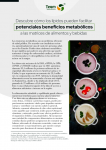Reformulation leads to overhaul of fats and oils dietary data
The US Food and Nutrient Database for Dietary Studies (FNDDS) is used to determine energy and nutrient intake for the nation as a whole, as well as for different population groups. But both commercial and at-home use of fats and oils has changed rapidly in recent years, meaning that the estimated nutrient value for many commonly consumed foods in America, such as pizza or potato chips, needed to be revised.
In particular, food manufacturers have been moving away from trans fats, or hydrogenated fats, in the wake of evidence that they cause coronary heart disease. In addition, nutrient values of existing fats and oils were updated to take account of more accurate analysis, providing what the researchers described as “minor but statistically significant differences”.
More accurate analysis
The report, which has been accepted for publication in a forthcoming edition of the Journal of Food Composition and Analysis, examined the impact of these combined factors on nutrient intake for a sample of 18,594 participants. Their food consumption was analyzed according to the latest nutritional composition data from the USDA Agricultural Research Service and compared to the previous 2004 data.
The report underlined that the data does not reflect changes in consumption habits, which would require comparison over time, but rather changes in the nutrient analysis of foods consumed. The authors also commented that the data cannot be used to track changes in the consumption of trans fats, as they are not included in FNDDS nutritional analysis.
Fat changes
“Changes in the US food supply may include reformulation of commercial products by food manufacturers to achieve a label claim of trans-fat free, greater availability of lower fat products such as 60 percent margarine-like spreads, partial displacement of soybean oil with other oils in product reformulations, decreasing trend toward use of animal fats such as lard, and increased reporting of foods eaten outside home,” the authors wrote.
For example, where hydrogenated soybean oil had been taken as the norm for looking at nutrients from fat for certain products like cookies and crackers, partially hydrogenated industrial soybean oil is now considered more commonly used, so nutrient analysis has been changed to reflect this.
Difference in energy intake
After taking the latest nutritional information into account, the authors reported no significant difference for the percentage of energy gained from saturated fat, but significant differences for monounsaturated fat, down 3.4 percent, and for polyunsaturated fat, up 2.7 percent.
A ‘significant’ mean difference was determined as being a change of more than 0.001 percent of contribution to energy, which the researchers said applied “for the majority of the reported nutrients”.
As well as changing habits and reformulation, the authors said that an improvement in nutritional data was another important issue.
“For example, a review of food groups contributing to the difference in the intake estimates for total fat indicates that the differences may have been due to improved data for foods such as fried potato items, peanut butter, and chicken,” they wrote. “These foods are among the top contributors to fat in the diets of adult Americans.”
The FNDDS contains data on approximately 7000 foods as they are generally consumed in the US, including their energy content, a breakdown of 63 nutrients, and the weight of typical portion sizes.
Source: Journal of Food Composition and Analysis (2008)
doi:10.1016/j.jfca.2009.02.005
"The impact of revising fats and oils data in the US Food and Nutrient Database for Dietary Studies"
Authors: Jaspreet K.C. Ahuja, Linda Lemar, Joseph D. Goldman, Alanna J. Moshfegh











